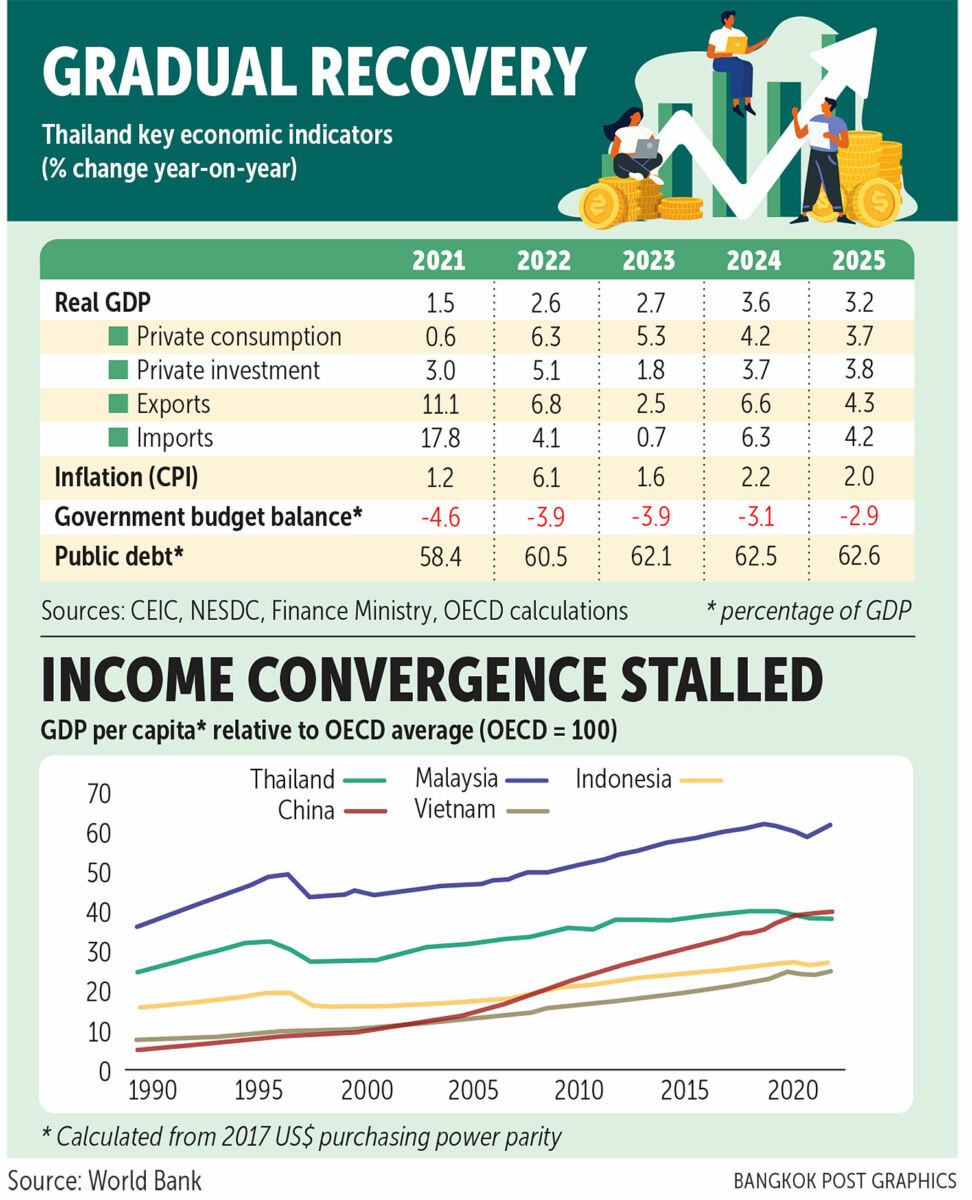Thailand’s triumph and tribulations: OECD report urges bold reforms

Thailand has made good economic recovery post-pandemic, with tourism as a major boost, however, a recent report from the Organisation for Co-operation and Development (OECD) highlights the need for bold reforms to solidify and extend this triumph.
The second OECD Economic Survey of Thailand commends the nation for averting a severe economic downturn during the pandemic, crediting robust fiscal support. Yet, it raises a red flag regarding the rapid surge in public debt, emphasising the necessity for a gradual and continued fiscal consolidation.
The report urges the phasing out of emergency support for households implemented during the pandemic, with a focus on sustained aid for those most in need through regular social protection measures. It advocates a tight monetary policy to combat inflation while maintaining fiscal prudence.
Projections for Thailand’s economic future are optimistic, with a forecasted 3.6% real GDP growth in 2024. Private consumption is expected to remain robust despite the gradual withdrawal of government relief measures and high household debt. The labour market is on the mend, but the report underscores the need for special attention to ensure the youth benefit fully from the recovery.
However, Thailand faces significant structural challenges, including an ageing population, the digital transition, shifts in global value chains, and the green transition. The report highlights the necessity for policy action to enhance productivity, foster a business-friendly environment, embrace digital technologies, and encourage competition.
To achieve higher income levels amid a declining working-age population, the OECD stresses the importance of initiatives to improve the business climate, relax market entry restrictions, and expand trade agreements, particularly in the services sector. Ongoing efforts to combat corruption are crucial.
Amidst these challenges, the report illuminates the pressing need for Thailand to build a more comprehensive social safety net to support vulnerable households. Although income inequality has decreased since the 1990s, over 50% of workers in the informal sector lack formal social security. The report stresses the necessity for inclusive growth, reported Bangkok Post.
In the quest for net-zero emissions, Thailand must undertake bold policy actions, including a comprehensive strategy for carbon pricing, tighter regulations, and targeted support for vulnerable social groups affected by the transition. The report encourages stronger incentives for domestic and foreign investments in energy efficiency, renewables, and green innovation.
Latest Thailand News
Follow The Thaiger on Google News:


























